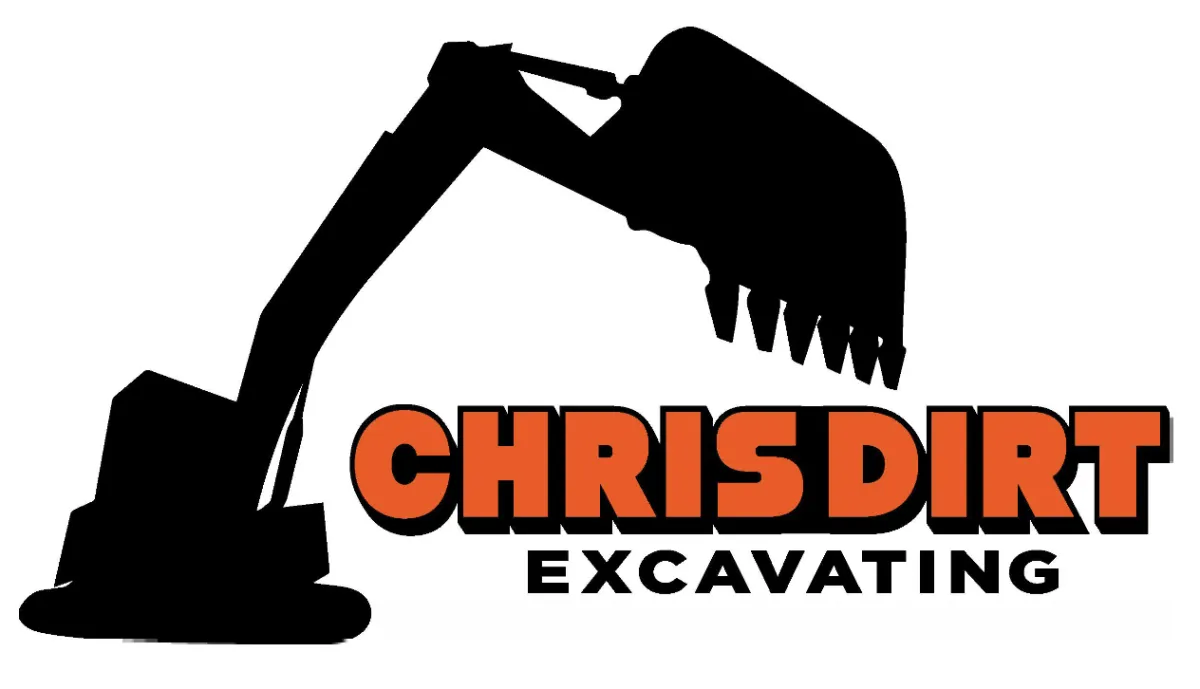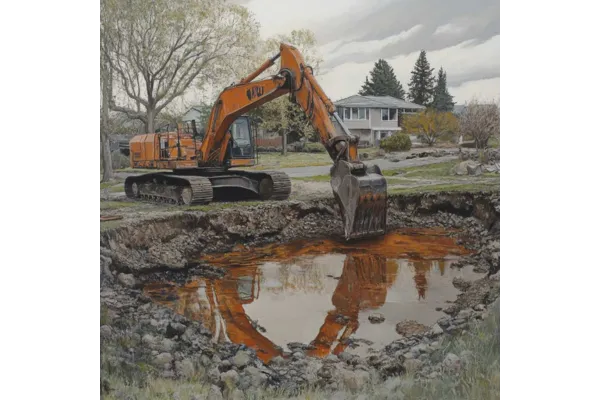
Serving Michigan Counties: Ottawa, Allegan, Kent, Muskegon, Montcalm, Barry, Ionia

Best Time of Year to Start an Excavation Project (It’s Not What You Think)
Best Time of Year to Start an Excavation Project (It’s Not What You Think)
Most people assume spring is the perfect time to break ground on a new project. The snow melts, the birds are back, and everything starts to feel fresh and new. It makes sense that you’d think spring is the right season to start digging.
But here’s the truth: when it comes to excavation, spring might actually be the worst time to get going.
We know that sounds backward. But at Chris Dirt Excavating, we’ve seen hundreds of residential excavation projects play out over the seasons—and we know exactly how timing can impact your budget, timeline, and final results.
Whether you’re planning a new home build, septic installation, drainage fix, or backyard overhaul, this guide will help you choose the right time to dig—and avoid the ones that can cause big headaches.

Let’s dig in.
The Short Answer: Late Summer or Early Fall Is Usually Best
If we had to pick the “Goldilocks zone” of excavation timing, it would be between late August and mid-October.
Why?
- The ground is dry and stable
- Soil has warmed and settled after spring runoff
- Rain tends to be lighter and less frequent than spring
- Contractors are in full swing and better staffed
- Materials are easier to source and deliver
- Inspections and permits tend to move faster
It’s a sweet spot where weather, soil, and scheduling all work together.
That said, the “best” time still depends on your project type, your property’s soil, and what region of the country you live in.
Now let’s break it down by season.
Spring: Mud, Runoff, and False Starts
You might be itching to get moving as soon as winter fades—but early spring brings serious challenges.
What’s the problem with spring?
- Frozen or saturated ground: Even after the snow melts, the soil below may still be frozen or too wet to dig.
- Unpredictable weather: Rain, snow, and freezing nights can all return unexpectedly in early spring.
- Permits may be delayed: Local municipalities are just starting their construction season and may be backed up.
- Contractors are booked up fast: Everyone rushes to schedule in spring, making it harder to lock in reliable crews.
That doesn’t mean spring is impossible—it just means you’ll likely face delays, added costs, or extra prep work.
When spring might work:
- You’re doing light grading or trenching on high, dry ground
- You’ve planned months ahead and already have permits in hand
- You’re OK with the job stretching into summer
Summer: Busy Season with Some Perks
Summer is peak construction season—and for good reason. The weather is generally warm and dry, and crews are at full strength. But there are also tradeoffs.
Pros of summer excavation:
- Dry conditions are great for stability and compaction
- Permits and material deliveries are more predictable
- Longer daylight hours give contractors more flexibility
Cons:
- It’s busy—good contractors book out weeks or months in advance
- You may pay more due to demand (especially for smaller jobs)
- Heat waves can cause crew slowdowns or job pauses
- Mid-summer storms can throw a wrench into your schedule
If you’re planning a summer project, the key is booking early—ideally in late winter or early spring. The best excavation crews fill their calendars fast.
When summer works best:
- You’re building a new home with a strict timeline
- You need dry ground for heavy machinery
- You can lock in your contractor early and plan ahead
Late Summer to Early Fall: The Hidden Gem of Excavation Timing
This is when things really come together.
Here’s why late summer and early fall are our favorite digging months:
- The ground is dry, settled, and easier to work with
- Summer storms are tapering off
- It’s easier to control drainage and erosion
- Crews are experienced and in rhythm
- Homeowners are wrapping up projects, so scheduling opens up
- You avoid the spring rush and winter freeze
Bonus: This is also a great time to prep your site for a spring build. Get the excavation done in fall, let the site settle over winter, and you’re ready to roll when warm weather returns.
When late summer/fall is ideal:
- You’re doing site prep for a spring construction start
- You want a grading or drainage project done right before winter
- You’re replacing or installing a septic system before cold sets in
Winter: Not Ideal, But Not Impossible
Believe it or not, excavation can happen in the winter—but it takes extra planning, equipment, and budget.
Challenges of winter digging:
- Frozen ground requires specialized equipment and heating
- Hauling and dumping materials is more difficult
- Days are short and weather can delay progress
- Permit offices and inspection schedules may slow down over the holidays
That said, some homeowners choose winter excavation for specific reasons:
- Contractor availability is better
- Off-season pricing may be more flexible
- You want to prep your site before spring rush
In areas with milder winters, light excavation work (like trenching or grading) is still doable. Just make sure you’re working with a crew experienced in cold-weather digging.
How Your Soil Type Affects Timing
Timing isn’t just about the calendar—it’s about the ground under your feet.
Here’s how different soils react to seasons:
- Sandy soil drains fast and is easier to dig in spring
- Clay holds water and is slippery or sticky—better tackled when dry
- Rocky soil is tough all year, but easier to break up when it’s warm
- Loam is ideal—it handles moisture well and digs easily most seasons
If you’re not sure what kind of soil you’re dealing with, we can tell you in a quick site visit. It makes a big difference in how—and when—we dig.
Other Factors That Impact the Best Time to Dig
There’s no one-size-fits-all answer, so here are a few more things to consider when picking your start date:
- What are you digging for?
A trench for water lines may be fine in spring, but a full basement excavation is better left for summer or fall.
- How’s your property sloped or drained?
Low-lying areas or shaded ground stay wet longer in spring—wait until it dries out.
- Are permits required?
Start your paperwork early. Delays here can push your entire timeline back.
- Do you need other contractors lined up?
Excavation is usually step one. If your foundation crew or septic installer isn’t ready, wait until they are.
What Happens If You Pick the Wrong Time?
We’ve seen jobs go sideways because homeowners pushed to start too early—or too late.
Starting too early can lead to:
- Delays due to weather or ground conditions
- Extra costs for soil stabilization or erosion control
- Equipment getting stuck or damaging your lawn
Starting too late might mean:
- Frozen ground adds labor and fuel costs
- Rushed projects that don’t meet quality standards
- Missing your window before winter sets in
The best way to avoid this is to talk to your excavator before scheduling. We’re happy to visit your site, check the conditions, and help you decide when to dig based on what you’re trying to do.
Final Thoughts: Plan Ahead and Dig Smart
The best time to start an excavation project isn’t always the obvious one.
In many cases, late summer and early fall offer the best mix of dry ground, stable weather, and available contractors. Spring may feel like the right time emotionally—but it often comes with wet soil, slow permits, and scheduling challenges.
Whether you’re digging for a foundation, septic system, drainage fix, or a backyard overhaul, the key is to plan ahead and work with a contractor who understands your soil, your timeline, and your goals.
At Chris Dirt Excavating, we don’t just show up with machines—we help homeowners make smart decisions that save time, money, and stress. If you’re thinking about a project and wondering when to start, we’re happy to walk your property and talk it through—no pressure, no nonsense.